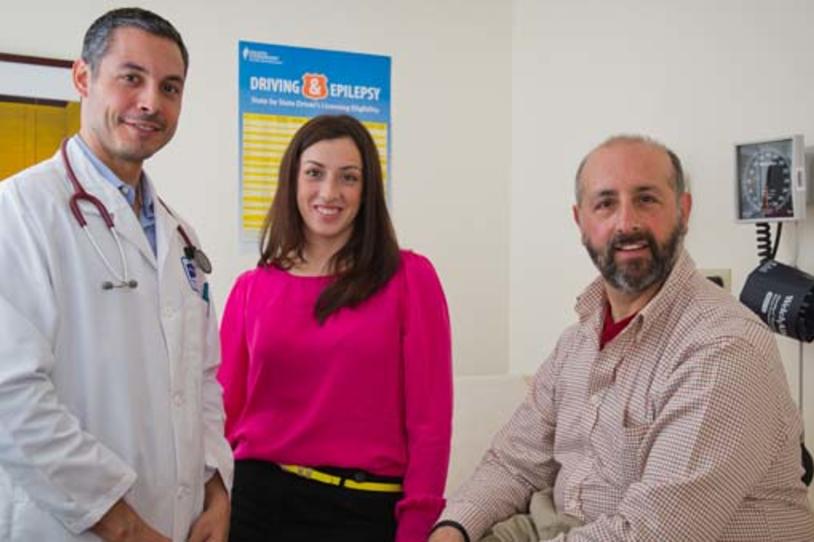
As a reader of the FoxFeed blog, you probably already know that clinical trials across the board have trouble recruiting participants. You probably also know that low participant enrollment in trials results in costly delays and even cancelling studies altogether. This kind of breakdown in the research process costs us all progress toward new treatments and cures.
But there's hope. Eighty percent of people with Parkinson's say they are at least "somewhat likely" to participate in clinical trials. Awareness, education and access to trials are key ingredients to getting more volunteers, both with PD and without, enrolled. In a Q&A with Medscape, Claire Meunier, MJFF's vice president of research engagement, discusses some of the creative ways the Foundation is addressing challenges facing trial recruitment today.
Read an excerpt below or the full article here.
Medscape: Clinical trial recruitment is notoriously difficult. Can you speak to any data reflecting just how difficult it can be and touch on potential reasons contributing to the difficulty?
Claire Meunier: The good news here is that it isn't difficult because patients or sites aren't interested in participating in or recruiting for studies. The Michael J. Fox Foundation (MJFF) did a survey of 832 patients to better understand their knowledge of and perceptions about clinical studies. We learned that fewer than 1 in 10 patients with Parkinson disease (PD) had participated in a trial, although more than 80% of respondents were at least "somewhat likely" to be willing to participate in one.
We hear from patients routinely that they are not aware that trials struggle to recruit; they assume that if they were needed for a study, someone would have asked them. This is where making sure that people understand their range of options and their rights as a subject comes in. We call it "demystifying clinical trials" and believe that before any patient is approached about participating in a specific trial, they should be educated on the environment of clinical research.
Medscape: How does the Fox Trial Finder work, and how successful has it been?
CM: In April 2012, MJFF launched Fox Trial Finder to address the breakdown between interested volunteers and PD studies that need participants. Interested volunteers -- both people with and without PD -- create a profile by entering demographic information, medical history, and preferences around clinical research participation, such as willingness to travel. The site notifies you of recruiting studies that you may be eligible for in your area, and you can message the trial team if you want to learn more. Likewise, trial teams are informed when volunteers match to their trials and can review deidentified profiles and send a message.
No matter who initiates contact, volunteers' privacy is protected by the highest level of security protocols; personal identifiers, such as name and contact information, remain private until volunteers proactively choose to share this information with a trial team.
As of early April 2014, more than 30,000 people have created a Fox Trial Finder profile, and 409 ongoing PD studies are listed on the site. In a survey of users, 78% of respondents said that they had inquired about a trial.
Medscape: What can other neurologic subspecialties and medicine as a whole take from your experience with PD trial design? And how best can clinicians encourage their patients’ participation in clinical trials or at very least educate them on the option?
CM: A tool like Fox Trial Finder definitely would work in another disease state, and it is an efficient way to get more people to trials. Equally as important, though, are the initiatives to raise awareness and educate because most people need the "why this and why now" to incentivize them to act. Our experiences and recommendations certainly apply beyond PD or even neurologic subspecialties. In fact, we have been invited by peers across disease states -- such as diabetes, Alzheimer disease, and Huntington disease -- to share our perspective.